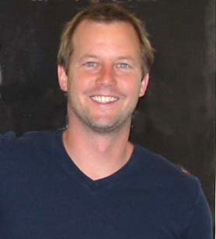David Freeman
Associate Professor, Chair

About Dr. Freeman
Dr. Freeman joined the Department in 2002. He teaches Principles of Anatomy & Physiology (Biol 2020); Vertebrate Physiology (BIOL 3730); Neurobiology (Biol 4635/6635); Biological Clocks (Biol 7338/8338), and Topics in Physiology/Animal Behavior (Biol 7018/8018; 7019/8019). He also delivers lectures in team-taught General Biology II (BIOL 1120). He presently pursues two lines of research, one project spans organismal biology and physiology, with an emphasis on biological rhythms, behavioral neuroendocrinology, and seasonality. This project investigates the neural mechanisms that regulate seasonal physiological and behavioral cycles in mammals, with concentration on the pineal hormone melatonin and its actions in the brain. His second project is focused on the neural and endocrine mechanisms involved in eusociality in mammals. This project is centered on one of only two eusocial mammals on Earth, the Damaraland mole-rat (DMR). His lab is actively working to characterize the neural, endocrine, and behavioral mechanisms of this rare mating system.
Education
B.A. Conservation Biology, Kent State University; Ph.D. Physiology & Neurobiology, University of Connecticut; Post-Doctoral Fellow Psychology, University of California, Berkeley
Research Interests
- The role of photoperiod and melatonin in seasonal cycles of behavior and physiology
- Characterizing neural targets mediating melatonin's actions
- Identifying neuroendocrine requirements in the expression of mating behavior in eusocial Damaraland mole-rats
- Characterizing how the reproductive hierarchy is established and maintained within colonies of eusocial mole-rats

